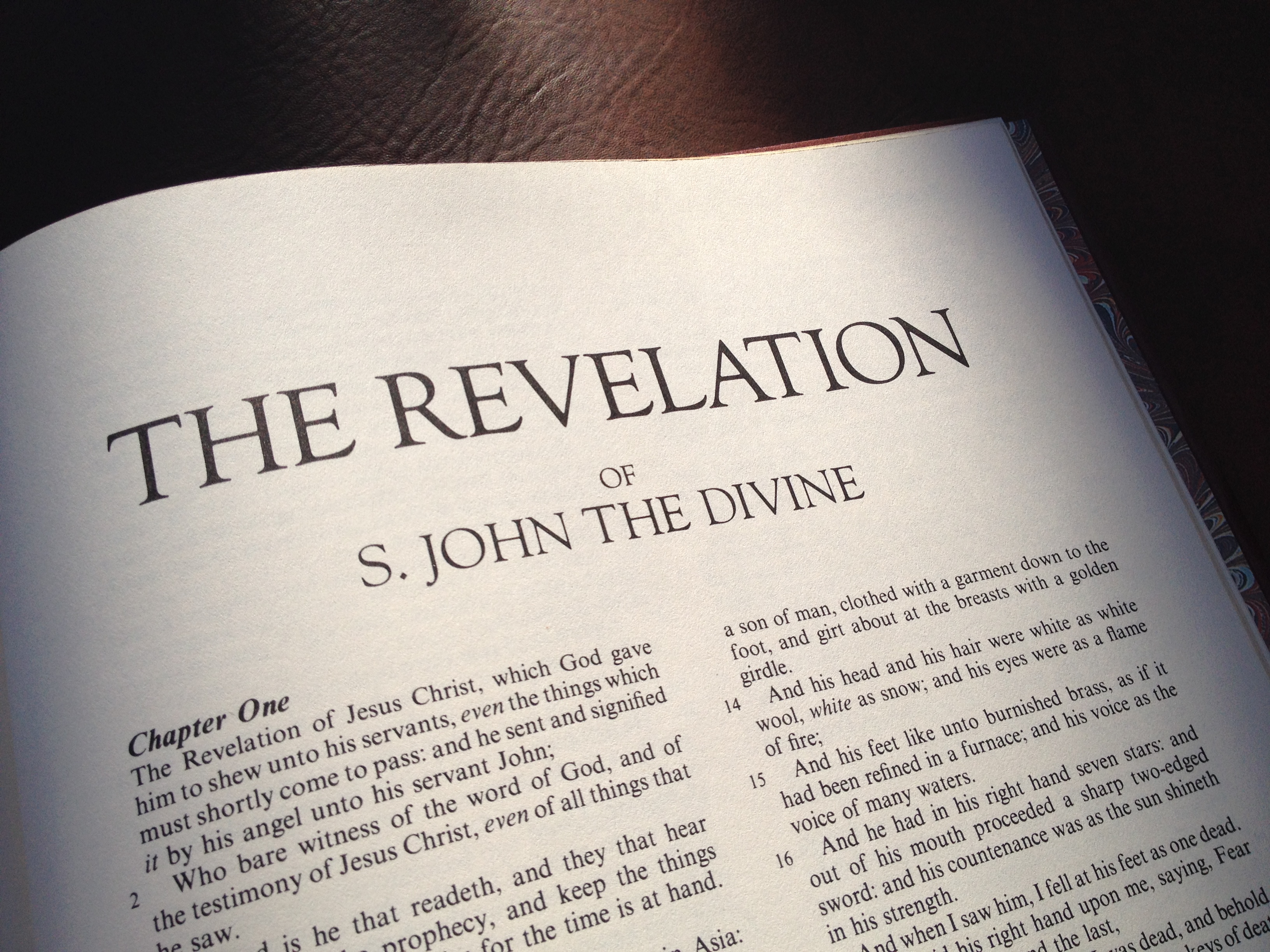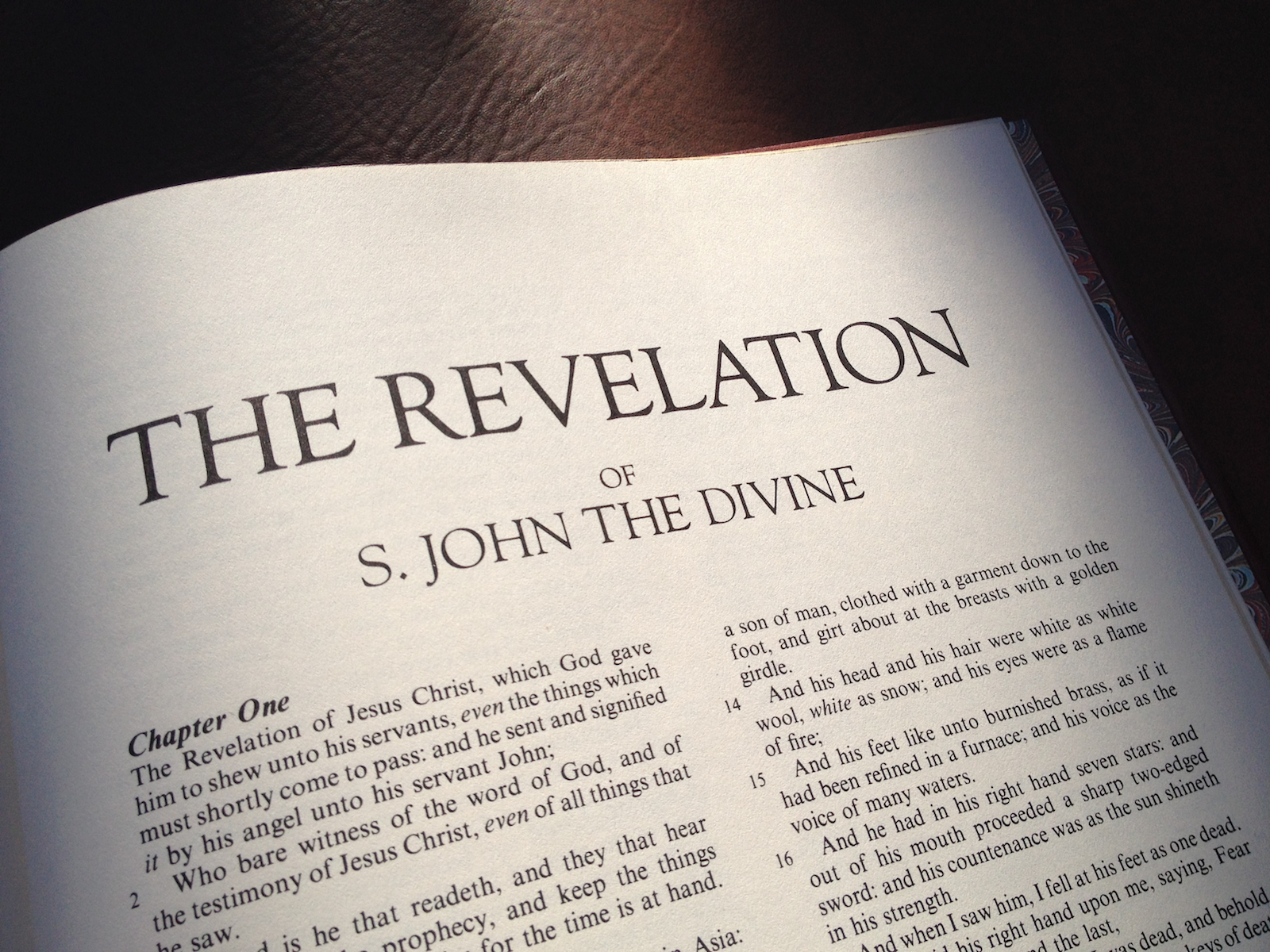
The Koine Greek name for the Book of Revelation is apokalupsis from which our English word apocalypse derives, is a word that in the minds of most people conjures up visions of horrific and cataclysmic events in which there is war, political and environmental upheaval involving mass death and destruction. This idea is a misnomer however. Though the Book of Revelation indeed foretells of a cataclysmic end times scenario, the Greek word apokalupsis literally means “laying bear, making naked; a disclosure of truth, instruction concerning things before unknown, manifestation, appearance,” and hence our English name for this book: Revelation. This meaning is made clear in the first verse of this same book.
The Revelation of Yeshua the Messiah, which Elohim gave unto him, to shew unto his servants things which must shortly come to pass; and he sent and signified it by his angel unto his servant John.
The Book of Revelation is just that—a revelation of things to come to pass, which Yeshua is making known to his servants (plural). This includes you and me.
Although, I don’t claim to have all or even much understanding pertaining to this book, I here share with you what I enlightenment I have been given to this point on several key topic. This is simply my understanding to this point until YHVH by his Spirit gives us more understanding. Until then, may we remain as little children, pale in hand, on the seashore of the vast ocean of YHVH’s unfathomable wisdom and knowledge in faith waiting for him to fill our buckets with more of his divine revelation.
What Should Be Our Perspective on the Book of Revelation?
On another note, there are those who champion the view that events of the Book of Revelation are primarily in the past tense. That is to say, Revelation records the events leading up to and following the destruction of the Jewish temple and Jerusalem in A.D. 70. The view that the events of Revelation were mostly fulfilled in the first century is called the preterist view, and those who support this position draw our attention to verses which point to the immediacy of the prophecies of the book being fulfilled—to events which must “shortly take place” (i.e. Rev 1:1, 3; 22:6, 10).
The problems with this view are several. To make it work, most of the prophecies of the book have to be allegorized. As such, preterists believe that little if anything Revelation says can be taken literally. The purpose of Revelation, they say, was to comfort the churches in Asia Minor in light of the persecutions they were enduring (Rev 1:4). While much in Revelation is obviously allegorical, to say that it all is, is simply applying a broad brush approach and, in my opinion, denies some of the basic rules of biblical interpretation. My approach is to take what the book says to be literal, unless the context or passages elsewhere in the Scriptures give us reason to interpret it symbolically.
The second major objection I have to the preterist view is that since most scholars agree that John wrote this book in the last decade of the first century, this view would make John’s Book of Revelation a record of history, as opposed to a prophecy “of things which must shortly come to pass,” which is contrary to the book’s purpose as the first verse of the book clearly states. The preterist view cannot accommodate this reality unless scholars can prove that John wrote all of his book before A.D. 70, a date which is at odds with the records of the early church fathers, which place the date of the books writing in the 90s.
Why I’m Not a Preterist
Preterism is the Christian eschatological (understanding of end time events) concept that all Bible prophecy has already been fulfilled including Yeshua’s Matthew 24 Olivet Discourse and those prophecies in the book of Revelation.
I will say that it is my belief that preterism is an over simplistic concept that often fails to take into account several things:
a) The dual or even multiple fulfillments of certain biblical prophecies. Even the Jewish sages who’ve been studying the OT scriptures for millennia recognize the often cyclical nature of some prophecies in that many have multiple fulfillments. It seems that the preterist looks at prophecy in more a linear (timeline) Greco-Roman perspective rather from the Hebraic, more cyclical nature in which the Bible was written. This is to their detriment and causes them to have a skewed view of biblical prophecy.
b) That some prophecies have been indeed fulfilled, while others are yet to be fulfilled, and yet still others have been fulfilled and will be fulfilled in a greater sense in the future.
c) They often fail to fully understand historical events. The preterist view of Olivet Discourse Matt 24 is a prime example. While it appears that some of the things Yeshua predicted in Matthew 24 have an AD 70 fulfillment, other events listed in this chapter clearly don’t unless you “cram it to fit and paint it to match” as preterists like to do. This they do by applying some things in a given prophecy in a literal sense, and then when a prophecy can’t be interpreted literally to fit historical events, they simply allegorize it away by making the prophecy symbolic. In my opinion, this is a dangerous approach and is playing fast and loose with the Bible. You can make the Bible say virtually anything you want it to say when you do this. This is a hermeneutical problem where they make the Bible say what they want it to say (eisegesis) instead of letting the Bible speak for itself (exegesis).
d) The preterist usually fails to understand Israel in history, who the people of Israel are, the Torah, and the nature of covenants from a Hebraic, full biblical context. It seems to me that preterism works if you take a more Catholic view of the Bible and history, not a Hebraic view.
e) Preterists seems to not understand the nature of biblical prophecy in that some prophecies are short range, some are mid-range, and some are long range in that they haven’t been fulfilled yet. What’s more, they fail to understand that even as biblical prophecy was divinely revealed to the prophet in the first place, so understanding its fulfillment requires a divine revelation as well. The Holy Spirit revealed the prophecy in the first place, and will reveal its interpretation often after the event has occurred. For example, the greatest OT prophetic concept of all — those prophecies pointing to the coming of the Messiah — wasn’t fully understood by the disciples until after his death. The disciples still thought he was Messiah the Conquering king rather than the Suffering Servant. Little by little, they came to understand that he came to redeem men from sin, and not (at least at that time) to set up his earthly kingdom after having defeated his physical enemies.
In reality, the truth of the Bible falls between the two extremes of preterism and non-preterism. Some biblical prophecies in the context of history have already been fulfilled, while others have been partially fulfilled, and still others have yet to be fulfilled. This is what I believe. It’s an overly simplistic and quite frankly, to my mind at least, a naive and spiritually immature approach to say that all prophecy has been fulfilled or that all prophecy is yet to be fulfilled. Understanding biblical prophecy isn’t quite that simple. For example, in all my extensive readings of the writings of the ancient Jewish sages, I’ve never seen a preterist viewpoint with regard to the OT prophecies. This ought to tell us something.
My sense is that the notion preterism arose from the antisemetic attitudes and doctrines of the early church fathers who wanted to excise all understanding of the Scriptures from a Jewish perspective and replace the Jews with the church when it comes to prophecy. If this is the case, then preterism in some of its more virulent and strident permutations could even be considered to be an antisemtic philosophy! This almost makes it a doctrine of demons. How can we take all scriptural reference to the Jews and to greater Israel and be so subjective and ego-centric as to apply them to the exclusively to the Gentile church?






